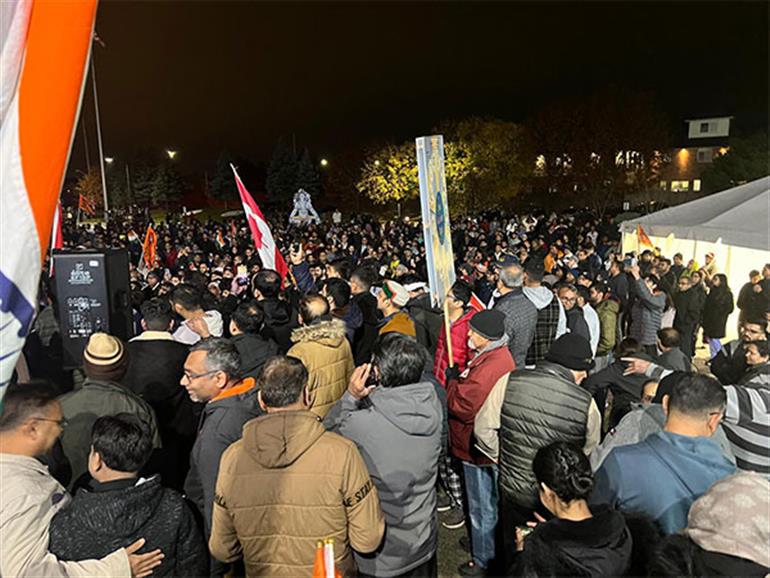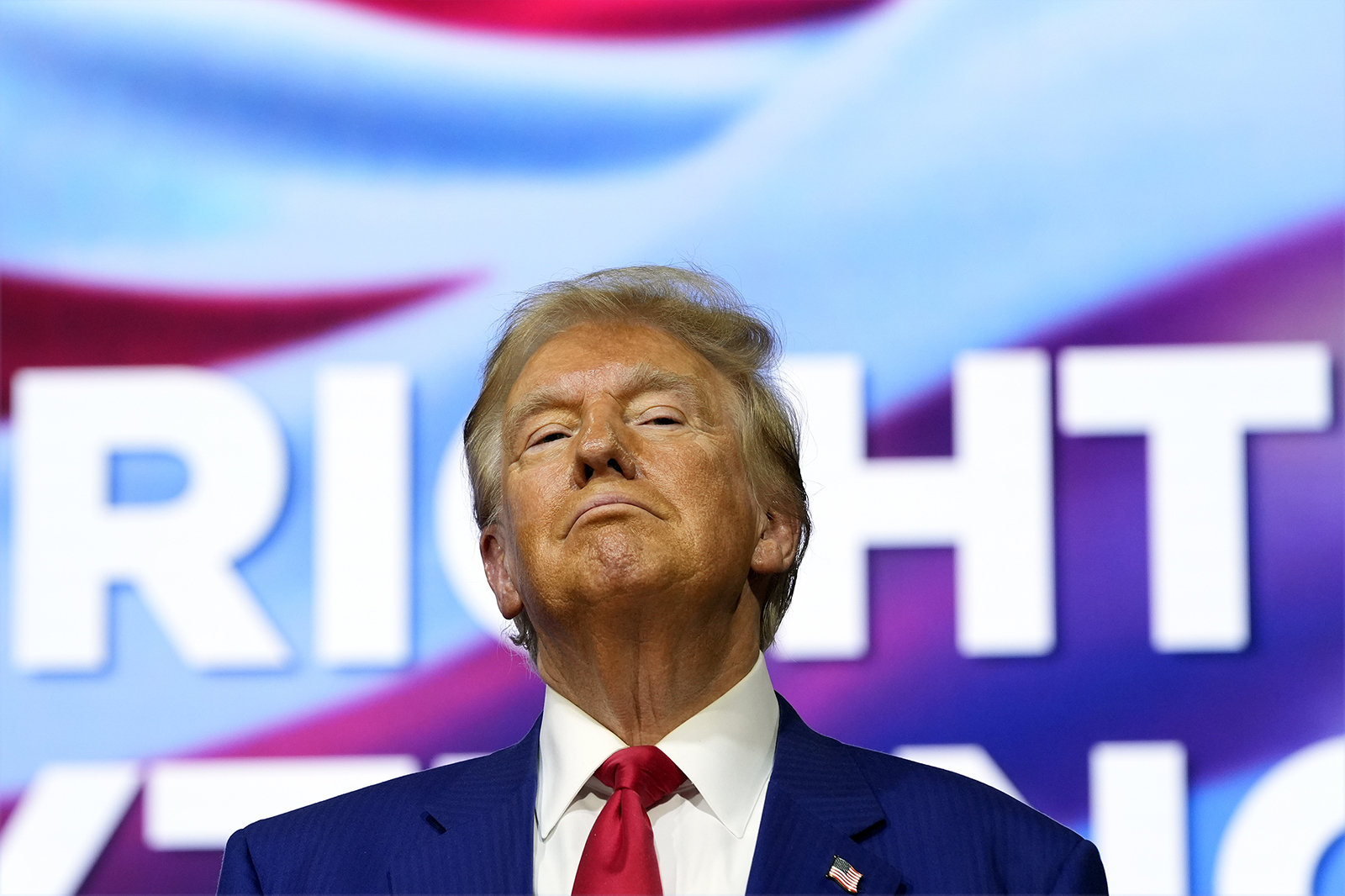We Don’t Want Our Islands to Be Used to Kill People
Ōriwa Tahupōtiki Haddon (Ngāti Ruanui), Reconstruction of the Signing of the Treaty of Waitangi, c. 1940.
For the past few weeks I have been on the road in Aotearoa (New Zealand) and Australia at the invitation of groups such as Te Kuaka, Red Ant, and the Communist Party of Australia. Both countries were shaped by British colonialism, marked by the violent displacement of native communities and theft of their lands. Today, as they become part of the US-led militarisation of the Pacific, their native populations have fought to defend their lands and way of life.
On 6 February 1840, Te Tiriti o Waitangi (the Treaty of Waitangi) was signed by representatives of the British Crown and the Māori groups of Aotearoa. The treaty (which has no point of comparison in Australia) claimed that it would ‘actively protect Māori in the use of their lands, fisheries, forests, and other treasured possessions’ and ‘ensure that both parties to [the treaty] would live together peacefully and develop New Zealand together in partnership’. While I was in Aotearoa, I learned that the new coalition government seeks to ‘reinterpret’ the Treaty of Waitangi in order to roll back protections for Māori families. This includes shrinking initiatives such as the Māori Health Authority (Te Aka Whai Ora) and programmes that promote the use of the Māori language (Te Reo Maori) in public institutions. The fight against these cutbacks has galvanised not only the Māori communities, but large sections of the population who do not want to live in a society that violates its treaties. When Aboriginal Australian Senator Lidia Thorpe disrupted the British monarch Charles’s visit to the country’s parliament last month, she echoed a sentiment that spreads across the Pacific, yelling, as she was dragged out by security: ‘You committed genocide against our people. Give us our land back! Give us what you stole from us – our bones, our skulls, our babies, our people. … We want a treaty in this country. … You are not my king. You are not our king’.
Walangkura Napanangka (Pintupi), Johnny Yungut’s Wife, Tjintjintjin, 2007.
With or without a treaty, both Aotearoa and Australia have seen a groundswell of sentiment for increased sovereignty across the islands of the Pacific, building on a centuries-long legacy. This wave of sovereignty has now begun to turn towards the shores of the massive US military build-up in the Pacific Ocean, which has its sights set on an illusionary threat from China. US Secretary of the Air Force Frank Kendall, speaking at a September 2024 Air & Space Forces Association convention on China and the Indo-Pacific, represented this position well when he said ‘China is not a future threat. China is a threat today’. The evidence for this, Kendall said, is that China is building up its operational capacities to prevent the United States from projecting its power into the western Pacific Ocean region. For Kendall, the problem is not that China was a threat to other countries in East Asia and the South Pacific, but that it is preventing the US from playing a leading role in the region and surrounding waters – including those just outside of China’s territorial limits, where the US has conducted joint ‘freedom of navigation’ exercises with its allies. ‘I am not saying war in the Pacific is imminent or inevitable’, Kendall continued. ‘It is not. But I am saying that the likelihood is increasing and will continue to do so’.
George Parata Kiwara (Ngāti Porou and Te Aitanga-a-Māhaki), Jacinda’s Plan, 2021.
In 1951, in the midst of the Chinese Revolution (1949) and the US war on Korea (1950–1953), senior US foreign policy advisor and later Secretary of State John Foster Dulles helped formulate several key treaties, such as the 1951 Australia, New Zealand, and United States Security (ANZUS) Treaty, which brought Australia and New Zealand firmly out of British influence and into the US’s war plans, and the 1951 San Francisco Peace Treaty, which ended the formal US occupation of Japan. These deals – part of the US’s aggressive strategy in the region – came alongside the US occupation of several island nations in the Pacific where the US had already established military facilities, including ports and airfields: Hawaii (since 1898), Guam (since 1898), and Samoa (since 1900). Out of this reality, which swept from Japan to Aotearoa, Dulles developed the ‘island chain strategy’, a so-called containment strategy that would establish a military presence on three ‘island chains’ extending outward from China to act as an aggressive perimeter and prevent any power other than the US from commanding the Pacific Ocean.
Over time, these three island chains became hardened strongholds for the projection of US power, with about four hundred bases in the region established to maintain US military assets from Alaska to southern Australia. Despite signing various treaties to demilitarise the region (such as the South Pacific Nuclear Free Treaty, also known as the Treaty of Rarotonga in 1986), the US has moved lethal military assets, including nuclear weapons, through the region for threat projection against China, North Korea, Russia, and Vietnam (at different times and with different intensity). This ‘island chain strategy’ includes military installations in French colonial outposts such as Wallis and Futuna, New Caledonia, and French Polynesia. The US also has military arrangements with the Federated States of Micronesia, the Marshall Islands, and Palau.
Christine Napanangka Michaels (Nyirripi), Lappi Lappi Jukurrpa (Lappi Lappi Dreaming), 2019.
While some of these Pacific Island nations are used as bases for US and French power projection against China, others have been used as nuclear test sites. Between 1946 and 1958, the US conducted sixty-seven nuclear tests in the Marshall Islands. One of them, conducted in Bikini Atoll, detonated a thermonuclear weapon a thousand times more powerful than the nuclear bombs dropped on Hiroshima and Nagasaki. Darlene Keju Johnson, who was only three years old at the time of the Bikini Atoll detonation and was one of the first Marshallese women to speak publicly about the nuclear testing in the islands, encapsulated the sentiment of the islanders in one of her speeches: ‘We don’t want our islands to be used to kill people. The bottom line is we want to live in peace’.
Jef Cablog (Cordillera), Stern II, 2021.
Yet, despite the resistance of people like Keju Johnson (who went on to become a director in the Marshall Islands Ministry of Health), the US has been ramping up its military activity in the Pacific over the past fifteen years, such as by refusing to close bases, opening new ones, and expanding others to increase their military capacity. In Australia – without any real public debate – the government decided to supplement US funding to expand the runway on Tindal Air Base in Darwin so that it could house US B-52 and B-1 bombers with nuclear capacity. It also decided to expand submarine facilities from Garden Island to Rockingham and build a new high-tech radar facility for deep-space communications in Exmouth. These expansions came on the heels of the Australia-United Kingdom-United States (AUKUS) partnership in 2021, which has allowed the US and the UK to fully coordinate their strategies. The partnership also sidelined the French manufacturers that until then had supplied Australia with diesel-powered submarines and ensured that it would instead buy nuclear-powered submarines from the UK and US. Eventually, Australia will provide its own submarines for the missions the US and UK are conducting in the waters around China.
Over the past few years, the US has also sought to draw Canada, France, and Germany into the US Pacific project through the US Pacific Partnership Strategy for the Pacific Islands (2022) and the Partnership for the Blue Pacific (2022). In 2021, at the France-Oceania Summit, there was a commitment to reengage with the Pacific, with France bringing new military assets into New Caledonia and French Polynesia. The US and France have also opened a dialogue about coordinating their military activities against China in the Pacific.
Yvette Bouquet (Kanak), Profil art, 1996.
Yet these partnerships are only part of the US ambitions in the region. The US is also opening new bases in the northern islands of the Philippines – the first such expansion in the country since the early 1990s – while intensifying its arm sales with Taiwan, to whom it is providing lethal military technology (including missile defence and tank systems intended to deter a Chinese military assault). Meanwhile the US has improved its coordination with Japan’s military by deciding to establish joint force headquarters, which means that the command structure for US troops in Japan and South Korea will be autonomously controlled by the US command structure in these two Asian countries (not by orders from Washington).
However, the US-European war project is not going as smoothly as anticipated. Protest movements in the Solomon Islands (2021) and New Caledonia (2024), led by communities who are no longer willing to be subjected to neocolonialism, have come as a shock to the US and its allies. It will not be easy for them to build their island chain in the Pacific.Email















